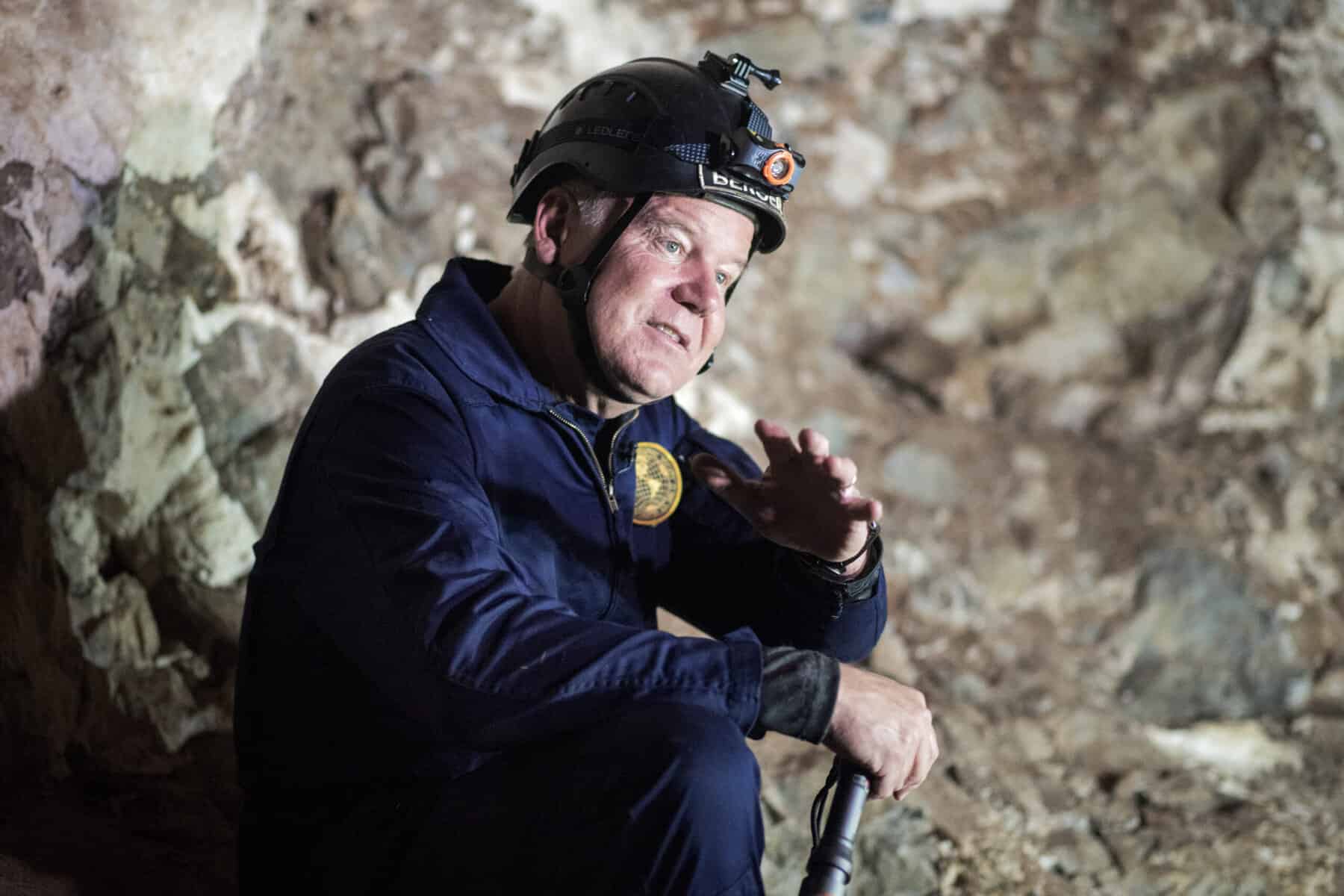Scientists, local and international, regard the expedition as a ‘meaningless stunt’ with ‘no merit’.

With four days to go until Heritage Day, a row has broken out in the scientific community about two hominin fossils – ancient human relatives that lived hundreds of thousands of years ago in southern Africa – being sent on a suborbital trip around earth on a commercial space flight earlier this month.
The trip was arranged by paleoanthropologist Professor Lee Berger.
The bones, a two million-year-old collarbone from Australopithecus sediba and a thumb bone from a 250 000-year-old Homo naledi, both found near Johannesburg, were stored in a protected container carried by Timothy Nash, one of three paying customers aboard Virgin Galactic’s VSS Unity space plane on a suborbital journey about 90 kilometres above the earth.
The Association of Southern African Professional Archaeologists (Asapa) this week expressed its “serious concern”, saying this undermined the cultural and traditional ethics in dealing with ancestral human remains.
“While Asapa supports efforts to promote southern Africa’s rich archaeological and palaeontological heritage and make science more accessible to the public, this should not be done in a way that trivialises irreplaceable heritage, cultural items or fossils.”
The Heritage Resources Agency (Sahra) is the national body responsible for the protection of South Africa’s cultural heritage.
In Berger’s application to Sahra, he said he had the permission of the vice-chancellor of the University of the Witwatersrand, Prof Zeblon Vilakazi, Virgin Galactic’s Richard Branson and Dr Ian Miller, chief scientific officer at the National Geographic Society.
“Some scientific studies may also be conducted, including the degree of radiation the fossils may take up while in space, though these experiments are still being designed and are not the primary purpose of this endeavour,” he said.
The main reason for taking the fossils into space, he said, was “in the interest of promoting science and bringing global recognition for our science of human origins research in SA in particular”.
He proposed Nash carry two fossils into space.
“This would make these fossils the first extinct humans into space and act as a sign of respect by humanity to our African ancestors, who gave us the technology, skills and mind that allows this perhaps greatest expression of human technological achievement – the exploration of space,” Berger said.
When Sahra approved the project, it said the samples “must be used for science promotion purposes only”.
Some experts saw the expedition as a meaningless stunt. Dr Mathole Motshekga, of the Kara Institute, said it was “a violation of the constitutionally entrenched cultural and religious rights of our people”.
“We seem to have a big gulf and a clash of cultures when it comes to our ancestors. The black culture of worshipping ancestors is seen by Europeans as a sign of backwardness,” Motshekga said.
“The departed are buried and live in spirit to look after those left behind… Taking their remains to space is a sign of utter disrespect – happening in a country where our traditional and cultural heritage should be sharing the same status as any other racial group.”
University of KwaZulu-Natal professor of culture and heritage Sihawu Ngubane said: “There is a belief that the spirit intercedes with the Creator on behalf of the living. The handling of remains is sensitive and … while there are no visible or direct consequences, the result is punishment.”
People could experience misfortunes that may lead to death of a relative, he said.
Researchprofessionalnews.com reported the European Society for the Study of Human Evolution said: “We do not see the scientific merit of this project and question the ethics of potentially damaging these unique materials. We urge the responsible stewardship and protection of these irreplaceable scientific resources.”
Sahra said the detailed recordings of the two fossils to date made it “satisfied that the promotional benefit derived was appropriately weighted against the inherent risk of travel of this nature”.
Additional reporting by Amanda Watson.
Support Local Journalism
Add The Citizen as a Preferred Source on Google and follow us on Google News to see more of our trusted reporting in Google News and Top Stories.






